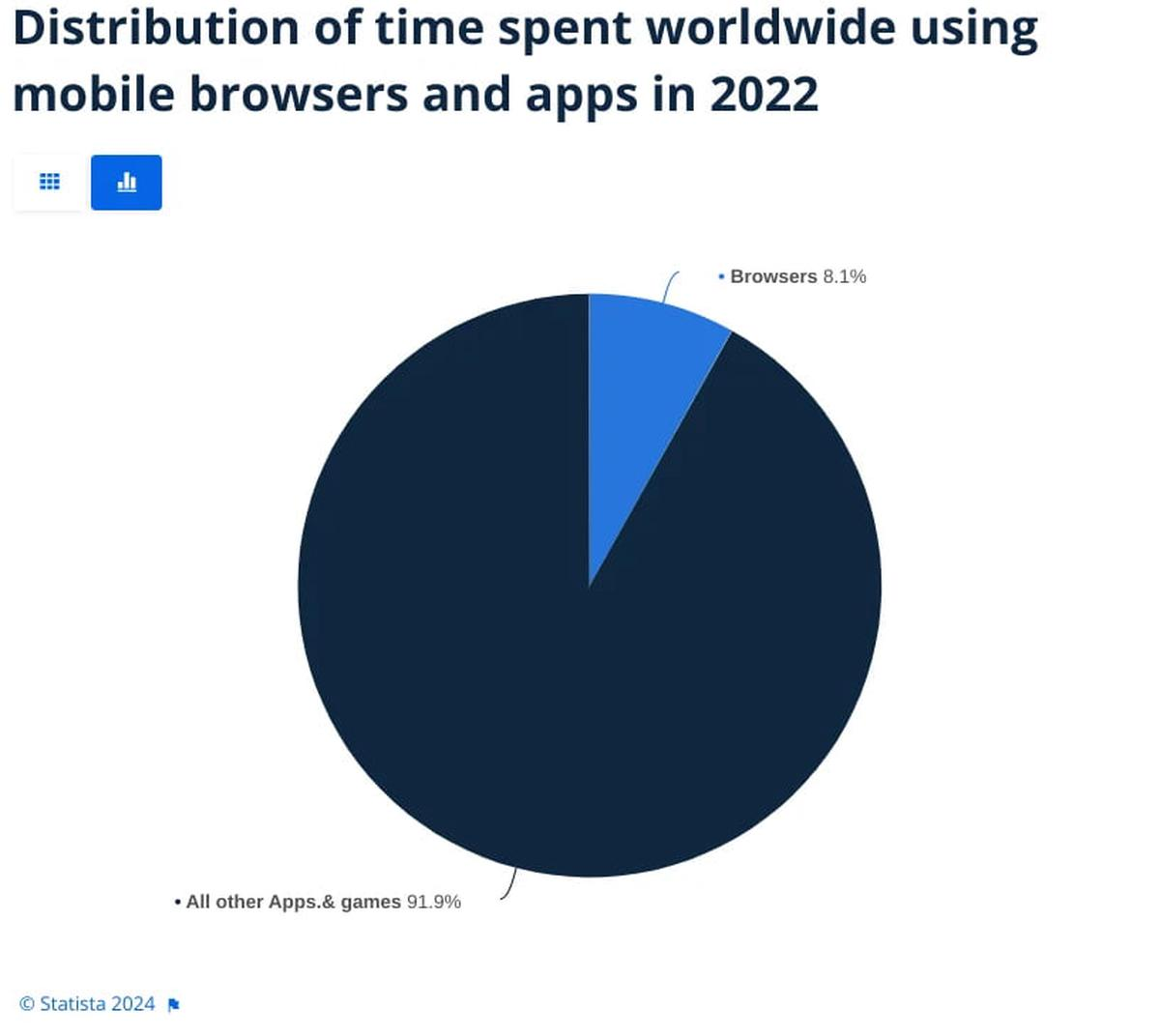1. The web is losing badly on mobile devices, despite dominating desktop
- Mobile accounts for 75%+ of new devices that can run browsers
- Web usage on mobile is stagnating/declining as a percentage of total mobile time
- The situation is worse in growing markets where mobile-first adoption happened
2. For the web to succeed as a platform, it needs to:
- Be frictionless and fresh
- Be safe by default
- Remain portable and interoperable
- Stay free from gatekeepers
- Maintain user control through standards and extensions
3. Major obstacles identified:
- Poor performance of JS-heavy websites on mobile devices
- Gatekeepers (Apple, Google, Facebook) limiting browser competition and capabilities
- Developer practices that prioritize desktop over mobile performance
- Widespread adoption of JS-first approaches that perform poorly on phones
4. Potential solutions suggested:
- Return to more HTML-first development approaches
- Improve mobile web performance significantly
- Break open browser competition on mobile
- Focus on user experience over developer convenience
- Use more responsible frameworks that prioritize performance
5. The stakes are high:
- Without change, the web risks becoming a "legacy curio"
- The market for web developers could stop expanding
- The open, interoperable future of computing could be foreclosed
The article argues this isn't inevitable, but requires significant changes in how we build for the web and how mobile platforms treat browsers.
quotingIt really is time to take the Web back:
nevent1q…r4e6
"Platform Strategy and Its Discontents
The web is losing. Badly. But a comeback is possible."
https://infrequently.org/2024/10/platforms-are-competitions/

